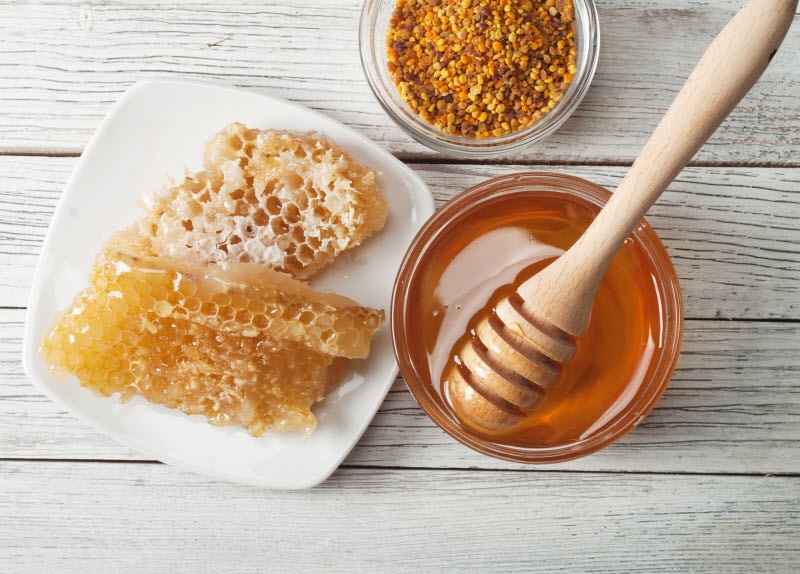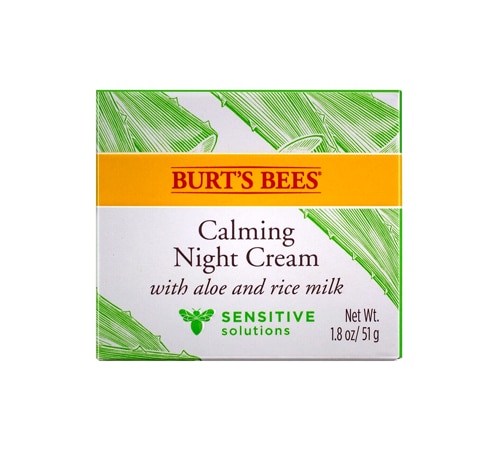One step toward being kinder to bees involves choosing sustainable honey instead of conventional honey.
But what exactly is sustainable honey? Simply put, sustainable honey is produced by beekeepers who follow practices that promote sustainability. Broadly defined, sustainable beekeeping respects the natural behavior of bees while not preserving the local ecosystem,
according to the Wayward Bee website.

Pass the Honey, a provider of raw honeycomb, and others explain that key components of sustainable beekeeping include:
- Paying attention to the behavior and survival of the bees and queens.
- Reducing the presence of hive viruses and parasites.
- Eliminating the use of harmful beekeeping products, such as chemicals.
- Limiting the number of colonies so that they can be managed effectively.
“In short, renewable beekeeping puts a focus on the natural process bees do on their own. It puts the bees at the forefront and decreases external forces, such as pesticides and over-involvement that humans have often imposed,”
Pass the Honey says.
Concentrating on the sustainability of bees supports the sustainability of agriculture. Bees
pollinate about 80% of the food we eat, yet bees around the world continue to fight for their survival.
“It’s important to remember that bees have been around and flourished for thousands of years. It is only after our modern history, in which we’ve tried to control bees with chemicals, that populations have decreased, placing stress on our food system,” Pass the Honey points out. “Going back to the natural processes encourages the success that was experienced before overly intrusive methods.”
Questions to ask about sustainable honey
The Greenopedia website highlights
several questions you should ask to determine whether honey is sustainably produced:
- How are the hives treated for parasites? Ideally, parasites should be killed with organic substances rather than chemical pesticides.
- Are the bees treated with antibiotics to combat bacterial diseases? Doing so can contaminate the honey with antibiotics.
- Are the beehives made from natural materials like wood, straw or clay instead of plastic?
- Are the bees rented out for commercial pollination?
- Is the honey harvested in the fall, when bees need their honey the most? Or is the honey harvested in the spring, when excess honey isn’t needed for winter survival?
- Are ingredients like sugar or corn syrup added when the honey is harvested?
- Is honey stockpiled to supplement the hives when bees don’t have enough to get them through the winter?
Where can you find sustainable honey
The Greenopedia website notes that sustainable, or ethical, honey comes from beekeepers who are more concerned about the well-being of their bees than they do about maximizing honey output.
Experts recommend buying sustainable honey from sources like local beekeepers or local farmers markets. You also can search online for sellers of sustainable honey.
Greenopedia suggests looking for honey that’s labeled as raw, unfiltered, organic or biodynamic. However, those characteristics don’t guarantee that honey is sustainably produced, Greenopedia says, although they do indicate that the producers followed sustainable beekeeping methods.
The nonprofit
Bees4life initiative says that aside from supporting local beekeepers, buying locally produced sustainable honey can help you avoid doctored honey — often made in China — that contains additives such as corn syrup, sugar and molasses.
Keep in mind that you may pay more for sustainable honey than traditional honey. Because raising bees and making honey is so labor-intensive, sustainable honey
sells for $2 to $3 per ounce, which is above the price of regular honey.
How to support sustainable honey without buying it
Even if you don’t buy jars of sustainable honey, you still can contribute to the growth of sustainable honey production.
For instance, you may choose to do business with places that nurture sustainable beekeeping. The Fairmont hotel chain’s
Bee Sustainable program features more than 20 honeybee apiaries and more than 20 wild pollinator bee “hotels” at locations around the world, including hotels in San Francisco and Washington, D.C.
“Not only does the installation and maintenance of bee apiaries help the local environment by providing bees with a home to pollinate area gardens and parks, but by harvesting the honey, chefs can offer delicious, local and sustainable honey for use in onsite bars and restaurants,”
says Bee Life USA, which helped established the Fairmont program.
You also might consider purchasing products that contain ingredients generated by sustainable beehives, such as lemonade, lip balm, pollen or the natural antibiotic propolis.
In addition, you can donate time or money to nonprofits that strive to protect bees. These include
The Bee Girl Organization,
The Honeybee Conservancy, the
Planet Bee Foundation,
Operation Honey Bee, the
Pollinator Partnership and
The Healthy Hive Foundation.
 Pass the Honey, a provider of raw honeycomb, and others explain that key components of sustainable beekeeping include:
Pass the Honey, a provider of raw honeycomb, and others explain that key components of sustainable beekeeping include:



